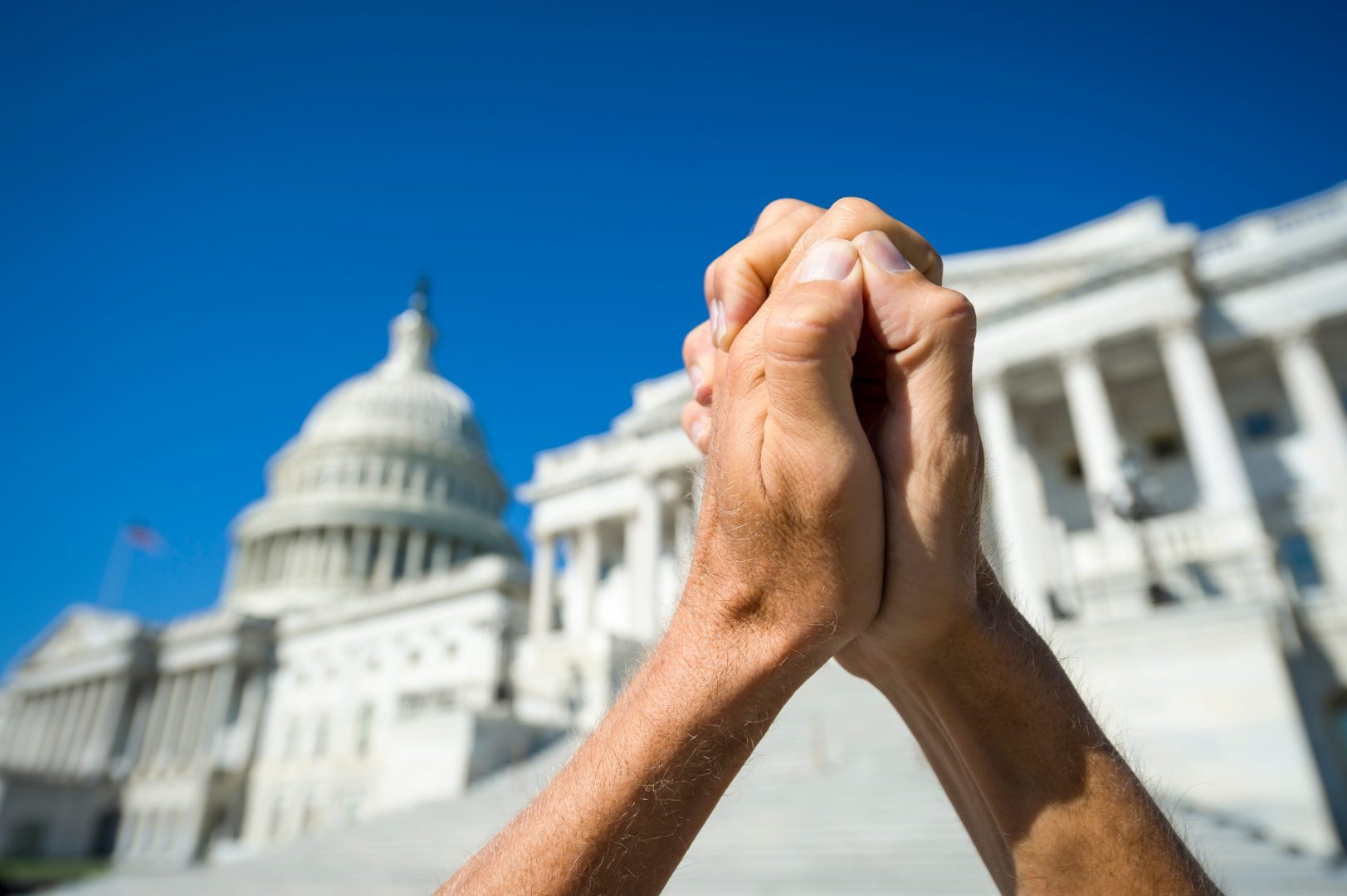


Get a free copy of Parental Rights & Education when you subscribe to our newsletter!

“This is an issue that unites parents all across the country, no matter what their political views on other matters might be.”
–SEN. TOM COTTON
Several bills have been recently introduced in Congress addressing social media use by minors, including one that would ban all children under 13 years old from opening a social media account and would require those ages 13 to 17 to have parental consent.
The Protecting Kids on Social Media Act, or S. 1291, has bipartisan support, as it is co-sponsored by Democrat Sens. Brian Schatz and Chris Murphy, as well as Republican Sens. Katie Britt and Tom Cotton.
The Senators say that parents’ worries over the threat posed by social media is one of the top issues they hear from those in their states. “This is an issue that unites parents all across the country, no matter what their political views on other matters might be,” said Cotton.
“I just feel like we’ve reached this point where doing nothing is not an option,” Murphy stated.
Their bill would require social media platforms to verify the age of a person before they are able to open an account. Those under 13 years old would not be allowed to open a social media profile and those ages 13 to 17 would be required to have consent from their parents.
S. 1291 would also prohibit social media companies from using the personal information of a user under 18 to recommend ads or content to the user.
This isn’t the only bill to impose age requirements for social media, however. Republican Sen. Josh Hawley, Mo., proposed a bill that would limit social media to those ages 16 or older. Rep. Chris Stewart, R-Utah, also proposed an age 16 standard.
On the state level, Utah Gov. Spencer Cox, R, signed two social media-related laws, one that requires parental consent for those under 18 to open a social media profile, and one that prevents social media companies from “using a design or feature” that causes the user under age 18 to become addicted to the platform. Arkansas also passed a law that mandates that social media platforms get parental consent before a user under the age of 18 opens a profile.
The Children’s Online Privacy Protection Act (COPPA), passed in 1998, restricts the personal data companies may collect from children 12 and younger. Most social media companies like TikTok, Meta which is the parent company of Facebook and Instagram, and Snapchat require users to be 13 or older to start an account due to COPPA , but children are able to get around the requirement by lying about their age.
Some have expressed concern about age-requirement bills such as S.1291. The reasons for opposition are varied, with some citing the potential risk of social media companies, and the government, collecting the personal data of Americans online. The Computer and Communications Industry Association (CCIA), an organization that represents companies such as Facebook and Google, sent a letter to Cox which warned that
“data collection creates extra privacy and security risks for everyone. This mandated data collection would include collecting highly sensitive personal information about children, including collecting and storing their geolocation to ensure they do not reside outside of the state when confirming that they are of age to be using these services.”
Sen. Marsha Blackburn, R-Tenn., and Sen. Richard Blumenthal, D-Conn., have proposed their own bill, which would allow parents to set restrictions on minor’s social media, require social media platforms to prevent the promotion of harmful behaviors to minors, and require companies to do an annual audit that shows parents if the platforms are following the law. Blumenthal and Blackburn expressed reservations about S.1291.
“I welcome additional ideas” but “I have some concerns about an age identification system that would create a national database with personal information about kids in the hands of Big Tech, potentially leading to misuse or exploitation. I have other concerns about a bill that would put accountability on parents rather than on Big Tech, as our legislation does,” Blumenthal cautioned.
Blackburn stated, “That amount of data in the federal government’s hand — you’re talking about a data breach waiting to happen. So, ours puts that burden on social media to design, to do safety by design and default, and to provide that toolbox to parents and teens for policing social media.”
Cotton counters that the government and gambling sites already use age verification and claims the bill will reduce the information of minors that social media companies have by preventing those under 13 from accessing their sites. He added,
“If a child is, say, too young to sign a contract or too young to open a bank account in the real world, they’re too young to sign terms of service agreements and use social media in the digital world.”
Others claim that bills limiting minors’ social media usage violates their First Amendment rights ,as well as their right to privacy. Still more critics claim that the bills would prevent minors from accessing “services” which help minors who are LGBT or have questions about gender identity.
Schatz stated, “The idea that an algorithm has some sort of First Amendment right to get into your kid’s brain is preposterous. And the idea that a 13-year-old has some First Amendment right to have an algorithm shove upsetting content down their throat is also preposterous.”

Among many dangers, social media use has led to emotional and behavioral problems among children and teenagers, as well as mental health issues like depression and anxiety. For this reason, U.S. Surgeon General Vivek Murthy has recommended that children under 13 years old not use social media. “It’s a time when it’s really important for us to be thoughtful about what’s going into how they think about their own self-worth and their relationships — and the skewed and often distorted environment of social media often does a disservice to many of those children,” he stated.
These bills have good motivations and would likely provide great benefits, such as requiring that parents have more control over their child’s social media. The bills aren’t without their concerns, though, such as the collection of personal information used to verify the age of a user or parent of a teen. It also raises the question of whether the federal government should be allowed to ban children under 13 even if their parents given them permission to open a social media account.
What is not a concern is a child’s “right to online privacy” from their parents or their ability to seek out information on LGBT issues or to get in contact with a person who can discuss these subjects with them. Children do not have a right to privacy from their parents, and certainly not online. Those who want them to be able to seek out people online to give them information about LGBT issues are seeking to usurp parental authority and manipulate children.
Perhaps one or more of the bills will be passed and they will likely provide benefit to America’s children and parents. However, the ultimate solution will not come from government. The solution is parents. Parents, your children don’t need a social media profile. They don’t need a cell phone. They don’t even need access to the Internet outside of educational purposes. You ultimately are responsible for your child, which means it is your duty to protect them and to place limits on what they can access.
Don’t raise them via television, Tik Tok, and Snapchat. Make them go outside and play, read a book, learn to play an instrument, do chores, or enjoy activities with their family. Your children will be happier, more well-adjusted, and yes, believe it or not, more socially adept than those who spend their childhood staring at a phone.
Ephesians 6:1-4 says,
“Children, obey your parents in the Lord, for this is right. HONOR YOUR FATHER AND MOTHER (which is the first commandment with a promise), SO THAT IT MAY BE WELL WITH YOU, AND THAT YOU MAY LIVE LONG ON THE EARTH.
Fathers, do not provoke your children to anger, but bring them up in the discipline and instruction of the Lord.”
Children are to obey their parents in part because their parents are tasked with teaching them what is beneficial. The last decade has taught us that any benefits that arise from social media use are far outweighed by their harms. The government and social media companies can play a role in protecting children, but ultimately it is parents who can do the most to restrict their children’s online access and protect their children from the many dangers of using social media.
Ready to dive deeper into the intersection of faith and policy? Head over to our Theology of Politics series page where we’ve published several long-form pieces that will help Christians navigate where their faith should direct them on political issues.

Notifications